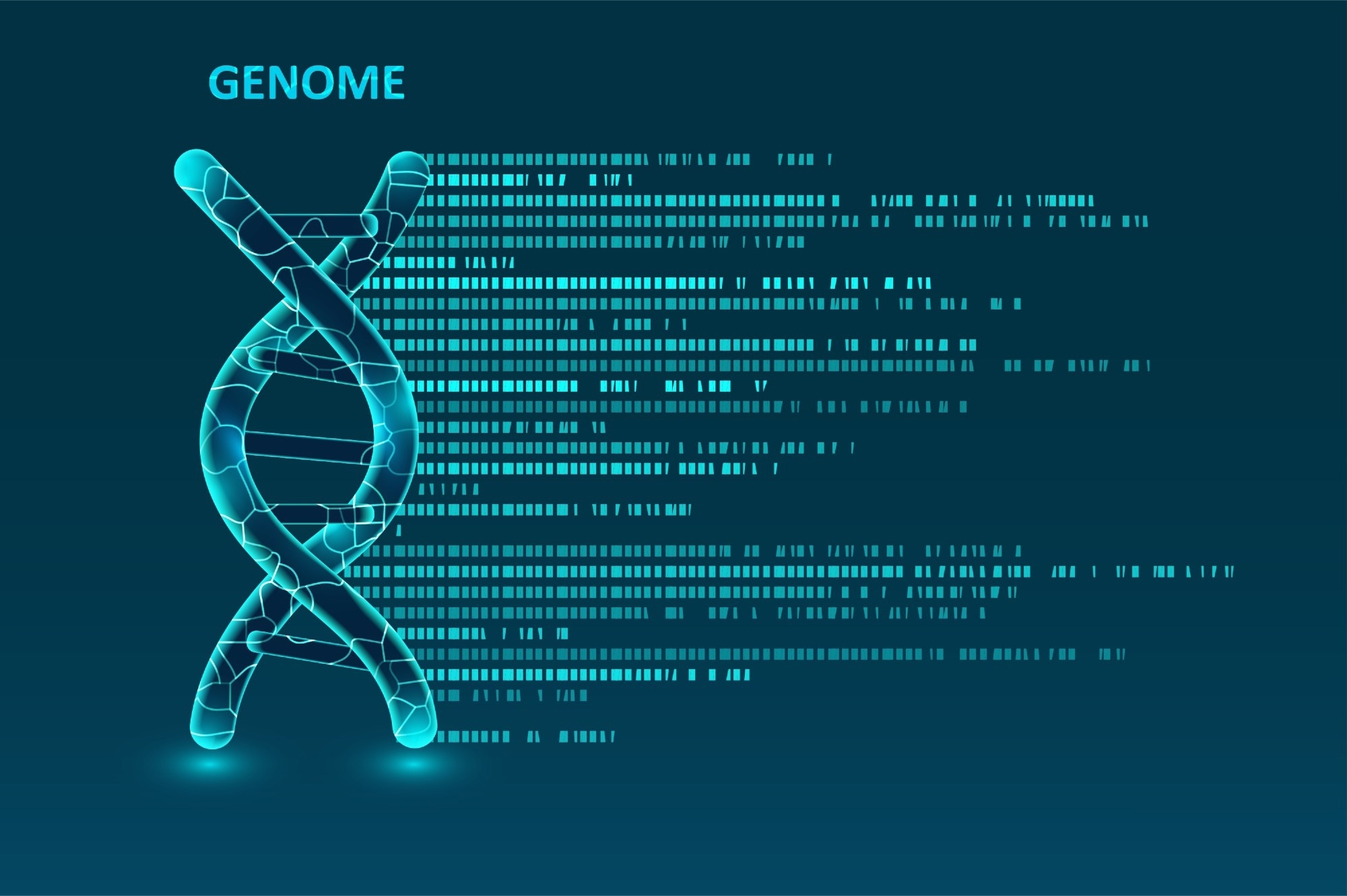What is Whole Genome Sequencing?
Whole genome sequencing (WGS) consists of a laboratory technique that includes sequencing of the whole genome, enabling researchers to determine an organism's entire DNA sequence.
This process can be useful as it comprises the analysis of the coding exon regions and non-coding intron regions of the DNA. The comprehensive analysis of an organism's whole genome can enable researchers to analyze every gene, which can help diagnose rare diseases.

Image Credit:
WGS in Rare Diseases
Approximately 80% of rare diseases have a genetic component, and the use of genome-based sequencing can be effective for diagnosing this type of disorder.
Whole genome sequencing can provide advanced analysis of variants or mutations within the genome, including single nucleotide variants or point mutations, copy-number variations, and structural variants.
Additionally, with 85% of disease-causing mutations being found in the exon regions and intronic regions also being involved in some DNA alterations, the comprehensive nature of WGS may be useful. WGS covers both exon and intron regions of the DNA, ensuring all sections of an organism's DNA are analyzed for mutations to diagnose genetic disorders.
A rare disease can be described as a disease that affects 200,000 people or less in the United States, which can also be found in approximately 1 in 1,500 people; this can also be translated to affecting less than 300 million people worldwide.
The quantity of rare diseases has been estimated to be around 7,000, with a predominant number being chronically debilitating and possibly life-threatening. These disorders can have a significant socio-economic impact, burdening families and society and, most importantly, disabling the affected patient in leading a good quality of life.
The support for rare diseases was initially low due to being deemed as 'health orphans' because of their rarity; however, this has increased due to public awareness. This can be ascribed to worldwide patient support groups that have raised global awareness. A higher level of attention and support can influence research into these diseases to ensure that even though these diseases are rare, their significance is still prioritized and patients with these diseases are treated with advanced care.
Effective Diagnoses
Advancements in next-generation sequencing technology have been associated with progressing the field of disease-gene discovery. With approximately 80% of rare diseases being genetic, WGS can be an effective diagnostic tool.
The NIHR has supported research into whole genome sequencing, which resulted in novel diagnoses for a quarter of patients within the study – this is significant as with effective diagnosis, patients can receive adequate care personalized to their disorder.
Effective care management can ensure that patients are provided with an opportunity to live a better quality of life, and this can also alleviate the socio-economic impacts of living with a rare disease that may have reduced an individual's independence and autonomy.
The use of whole genome sequencing can be useful when diagnosing rare diseases at an earlier stage. This can ensure patients are provided with a more comprehensive management plan to prevent disease advancement, if possible. WGS can also be used as a predictive test to assess whether other family members have inherited the rare disease.
The life-saving potential of diagnoses can ensure that patients are provided with advanced care, which can aid in earlier treatment plans, such as bone marrow transplants, if applicable. Realizing the need for a transplant at an early stage can be critical for a patient who may be waiting for a match for a long period.

Image Credit: H_Ko/Shutterstock.com
Future Outlook
Rare diseases have gained more attention in the past three decades, leading to more research in this critical area. With most rare diseases having a genetic component, whole genome sequencing may be revolutionary for diagnosing rare diseases.
Additionally, diagnosing rare diseases with a comprehensive genomic test can ensure mutations are not missed from other targeted gene panel testing. This can ensure patients are not provided with ineffective drugs, resulting in resistance to medication, adverse side effects, and even disease progression.
The use of whole genome sequencing at an earlier stage can also ensure patients are given a wider range of available treatments or clinical trial options to ensure they have the highest chance of survival. Earlier diagnosis can also prevent further disease progression and options such as bone marrow transplants, which can aid in a better quality of life.
Continue Reading: Role of Whole Genome Sequencing in Disease Diagnosis
Sources:
- Liu, HY., Zhou, L., Zheng, MY. et al. Diagnostic and clinical utility of whole genome sequencing in a cohort of undiagnosed Chinese families with rare diseases. Sci Rep 9, 19365 (2019). https://doi.org/10.1038/s41598-019-55832-1
- Full genetic sequencing can improve diagnosis and care of patients with rare diseases. Nihr.ac.uk. https://www.nihr.ac.uk/news/full-genetic-sequencing-can-improve-diagnosis-and-care-of-patients-with-rare-diseases/25106. Published 2022. Accessed July 19, 2022.
- Turro E, Astle W, Megy K et al. Whole-genome sequencing of patients with rare diseases in a national health system. Nature. 2020;583(7814):96-102. doi:10.1038/s41586-020-2434-2
- Whole genome sequencing helps to unravel mystery of rare disease diagnosis. Nihr.ac.uk. https://www.nihr.ac.uk/news/whole-genome-sequencing-helps-to-unravel-mystery-of-rare-disease-diagnosis/29245. Published 2022. Accessed July 19, 2022.
Further Reading